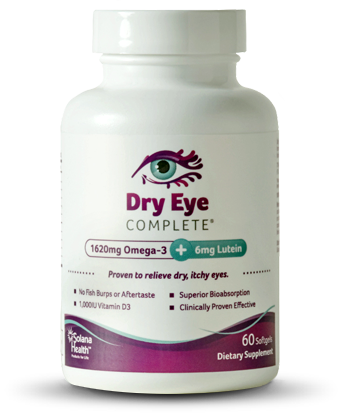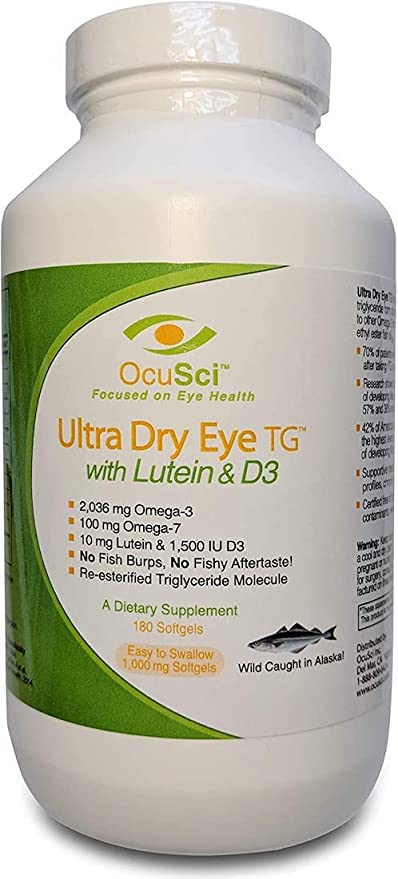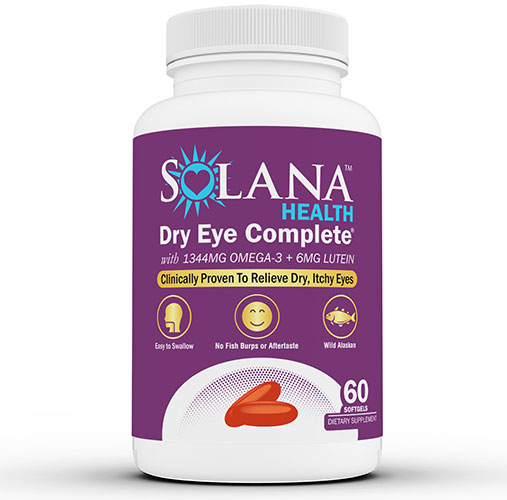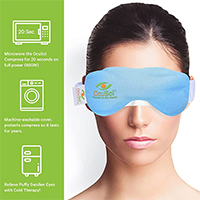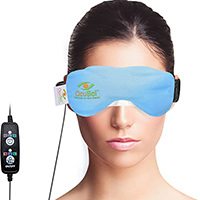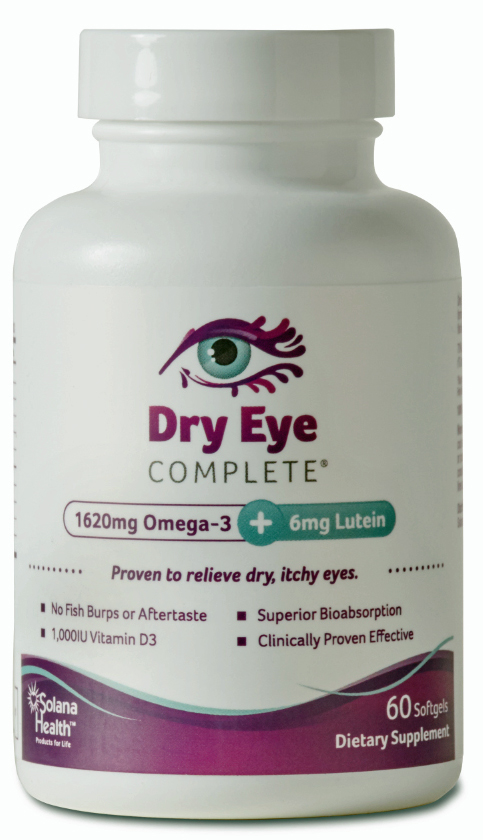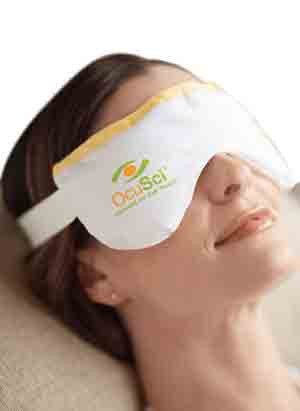If you find that you develop red, dry, irritated eyes, it is all too easy to grab some eye drops and get relief. These drops are intended to be a short time solution for problems with eyes. They are, in fact, one of the most popular types of over the counter treatments available on the market today. That doesn’t mean, however, that they can be used safely for as long as you want. In fact, frequent or prolonged use can lead to significant problems.
When you stop using eye drops, their effects start to wear off. It is quite common, at that point, for the original problem you had with your eyes to return, often stronger than what it was in the first place. This is known as rebound hyperemia, and this, in turn, can lead to eye drop addiction.
Is it Possible to Be Addicted to Eye Drops?
There are a number of over the counter eye drops, generally used to treat red eyes and allergy symptoms, which contain vasoconstrictors, or topical decongestants. It is possible for these types of drops to lead to rebound redness and swelling, eventually escalating to chronic redness of the eye. In fact, this redness can get a lot worse the longer someone uses eye drops. This is why it is very important to speak to a physician about eye problems and to decide which ones work best.
If artificial tears do not contain preservatives, it also isn’t possible to become physically dependent on them. This is because these types of drops only contain moisturizing substances, which are perfectly harmless. They do not contain any form of medication and can therefore be used as often as someone wants to. That said, a psychological addiction can be possible, although this is not dangerous.
If, however, the eye drops have the preservative benzalkonium chloride, it is possible for hypersensitivity reactions to occur. These drops are often prescribed as a glaucoma treatment, and people often have to use them for long periods of time, as well as frequently. It is important to be properly medically managed in that time period.
Different Eye Drops, Different Reactions
Because there are many different eye drops, they can lead to a range of different reactions as well. The table below highlights some of the more common types of eye drops, what they do, and what the consequences of prolonged use can be.
| Type of Drops | Ingredients | What They Do | What Happens When You Stop |
| Whitening or decongestant | Various vasoconstrictors, including naphazoline and tetrahydrozoline. | They constrict blood flow that goes to the sclera’s outer blood vessels. The sclera is the eye’s white part. They also stop blood flow to the conjunctiva, which is the white part of the eye’s clear tissue. Put together, eyes appear less red. | The blood vessels will no longer be constricted. This means nutrients and oxygen can return to the sclera. As a result, rebounding can happen, as the vessels once again enlarge and redden, attempting to send the deprived structures of the eye more oxygen. These eye drops can become very addictive, and people often depend on them to have clear, white eyes. |
| Allergy | These contain decongestants and antihistamines. | Their role is to stop allergy symptoms on the eyes, including itching, puffiness, redness, and watering. Histamine, which leads to these problems, is inhibited, and the decongestant ensures puffiness is reduced. | After prolonged use, it is possible for people to develop redness, dryness, and irritation of the eye. These are the very symptoms they tried to get rid of in the first place. |
| Lubricating | Artificial tears contain salts, water, polymers, and various ingredients that make them act like tears | These drops are used to relieve irritation and dryness of the eye, caused because the tear production is insufficient or of poor quality. This is common with various eye infections, glaucoma, and dry eyes. | Artificial tears can be overused, meaning that natural tears are washed away. A dependency is also possible as people start to need the drops to have moisture in their eyes, and to protect the eye’s most delicate layers. |
What Is Eye Rebound?
In order to properly understand eye drop addiction, you must first understand eye rebound. Essentially, an over the counter eye drop is used by people for instant relief. As soon as they are dropped in the eyes, they feel and look better. But long term use can make the original problem worse. When the effects of the drops wear off, the eyes often end up more irritated and redder. It is then all too easy to apply more drops, and the cycle then continues.
When you purchase over the counter eye drops, they are likely to contain naphazoline or tetrahydrozoline, which are vasoconstrictors. These shrink the sclera’s outer blood vessels, making the eyes appear white. When blood flow to the ocular area is decreased, however, the necessary nutrients, vitamins, and other defense agents also cannot get to work properly. Hence, when you no longer use the drops, the blood vessels will quickly become larger, often even larger than before, leading to increased redness in the eyes.
In terms of treatment, those who believe they have eye rebound should stop using their over the counter eye drops straight away. The length of time it takes someone to recover varies greatly depending on the drops used, how often, and how long. What is more important is that you find out what is actually causing the problem with your eyes. Hence, you should go visit an ophthalmologist or optometrist to receive a diagnosis. It is very likely that you are suffering from Dry Eye Syndrome (DES), and you may simply have to return to using artificial tears for life, but it is always best to have this checked out.
It is also possible that you are not suffering from DES at all. A number of other, sometimes more serious, conditions can also lie at the heart of it. You may have an allergy, suffer from sun exposure, an infection, foreign body, dust, tiredness, foreign bodies, or even a combination of any or all of these. It is also possible that you are developing glaucoma, which requires instant medical attention.
The majority of over the counter eye drops contain tetrahydrozoline, which is used as a decongestant. It is easy to recognize these, as they will list that they provide immediate relief for anyone with red eyes. These drops should not be used for long periods of time, as they can cause increased irritation and dryness, burning and stinging, headaches, blurred vision, fast and irregular heartbeats, sweating, and nervousness. They are also highly addictive, as your eyes may start to need them in order to keep them white.
If you do feel that you need to continue to use eye drops, you need to follow the instructions to the letter, and try to use as few drops as possible. Eye drops are there to treat symptoms only, and therefore do not address the underlying condition. This is why it is so important that you speak to an ophthalmologist or optometrist in order to make sure you know what is actually going on. It may be something that is very easy to treat, or it could be something serious.

